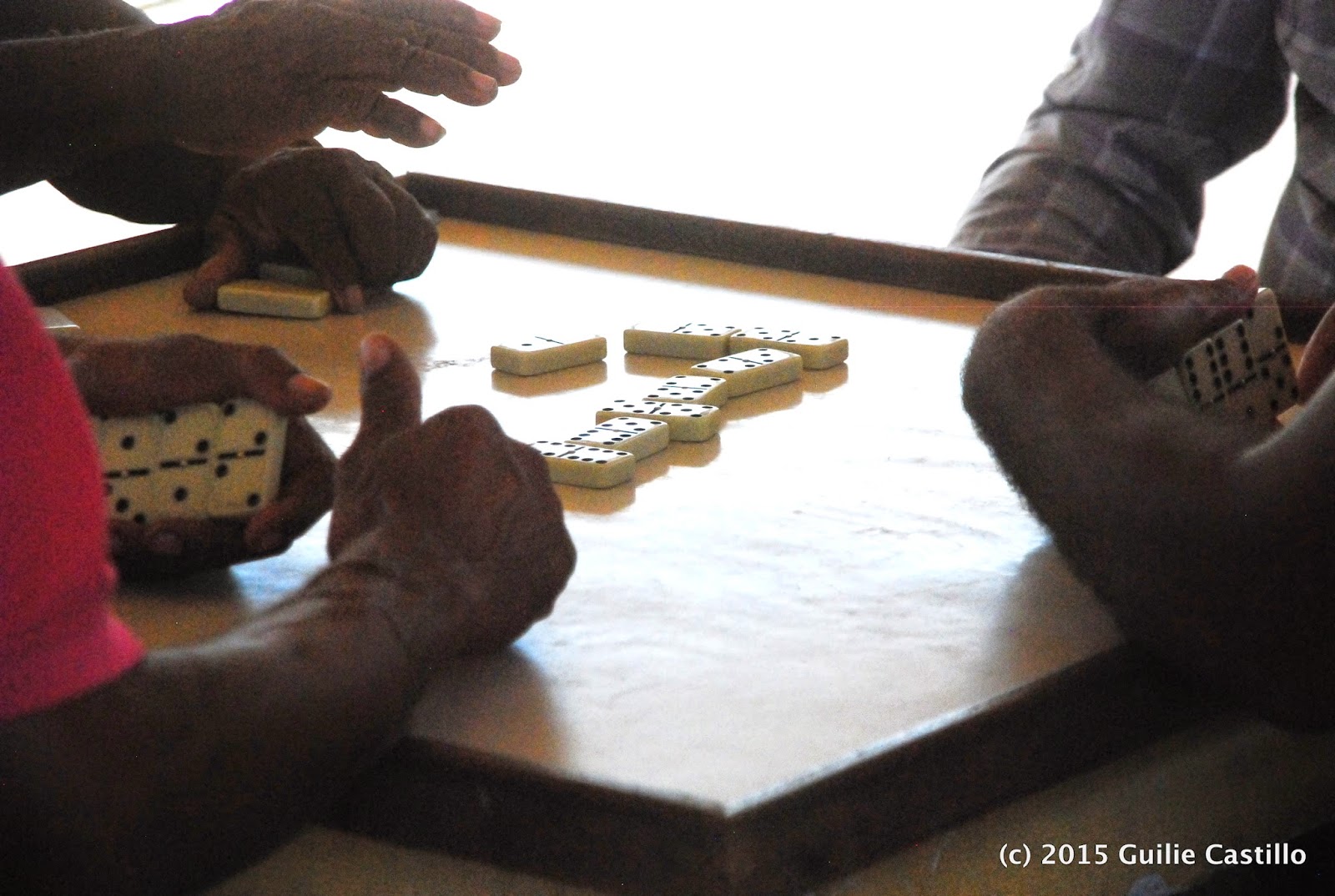X-ing
In Curaçao, crossings are one of the many quirks used to trap us foreigners into hilarious clueless entertainment for locals.
 |
| Roundabout in Otrobanda |
There's your normal, everyday, run-of-the-mill
roundabout or
traffic circle. We all know the rules for that: if you're in the circle, you have preference. If you're outside the circle, you yield.
And then there's the
plénchi di tráfiko.
 |
Part of the reason this post is so late is because I couldn't
get a good image of a plénchi di tráfiko. Sorry. But this sign
is just before one of the island's most well-transited plénchi di tráfiko:
the one on the way to Banda Abou and Westpunt and the most gorgeous
beaches you've seen in your life. |
To me, it looks for all the world like a roundabout -- sure, a bit irregular, like not the perfect circle roundabouts tend to be, but a roundabout nonetheless. A
circular intersection. And so, as I enter into one, I yield.
And get honked all the way to
Banda Abou.
In a
plénchi di tráfiko it's traffic from the right that has preference. So as I enter I have preference, but then I must yield to the next intersecting road -- because it's coming from my right.
(It took me a good two years to learn that, because
there are no signs.)
Yu di Kòrsou
[YOU-dee-course-OW]
Literally: young (as in "child") of Curaçao
 |
Yu di Kòrsou, shortened to YDK, has become ubiquitous.
"United we stand," reads the caption. |
Yu di Kòrsou is what Curaçao natives call themselves -- not Curaçaoans, not Antilleans. But one can
become a
yu di Kòrsou, too, and not necessarily by a change in citizenship. When someone displays behavior that's unique to Curaçao -- using, for instance, the expressions in
this A-to-Z series -- or when someone has lived in Curaçao for a long time, or even if they haven't but exhibit obvious and extreme love for the island and its food and customs... Yep. All of these are qualifications for being a
yu di Kòrsou.
But the opposite is also true. If you're critical of the lifestyle, if you don't like Curaçao food, if you're no fan of Carnaval or
Sèu or the
tumba festival or if you don't like
tambú, or if you just think differently -- what some would call
out of the box -- then it doesn't matter if you were born in Curaçao and have lived all your life here. You'll still find yourself seldom being referred to as a
yu di Kòrsou. Especially if you're white. And if your skin is dark, then you'll more often hear the pariah term of
black macamba (
wigger, but in reverse).
And last but certainly not least:
zjogoro
[zhoh-GOH-roh]
English: hangover
Perhaps the most important addition to your vocabulary if you ever visit Curaçao ;)
This is it, the end of the #AtoZChallenge. I've had a blast researching for these posts, and I hope you've enjoyed them -- and, besides learning some funky expressions, gained a bit of insight to this cultural melting-pot of an island I've chosen to call home. It's been a pleasure to share Curaçao with you.
Te aki ratu, dushi hende!
Okay, we'll use that phrase as the last bonus question of the series. No hints... well, just one. In English, the equivalent is often paired with
alligator :)
(Find updates on the giveaway here, and come back on May 8th for the announcement of the three winners of THE MIRACLE OF SMALL THINGS, a collection of short stories set in Curaçao.)
















